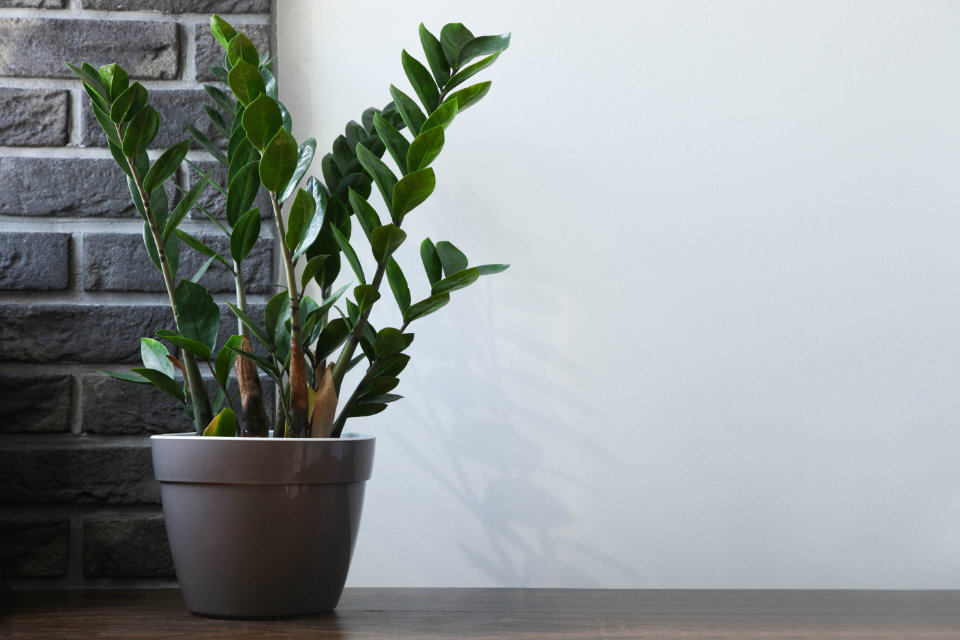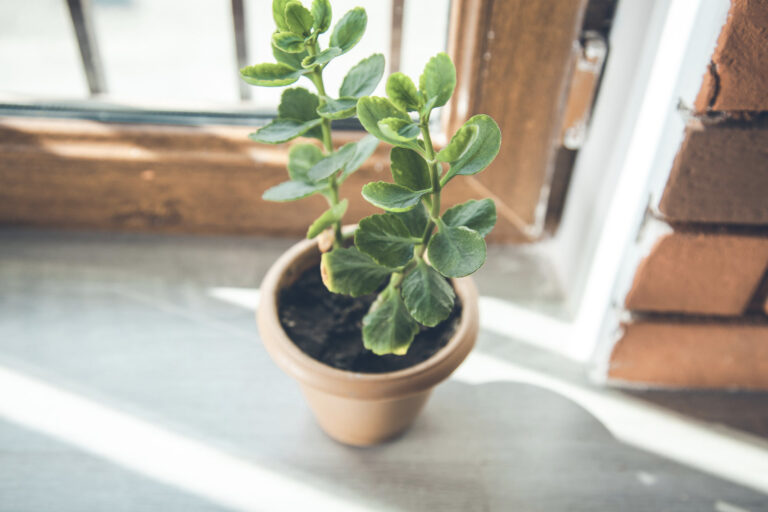In the world of Feng Shui, every element within your living or working space plays a significant role in shaping your life’s energy and flow. One of the most potent and transformative aspects of this ancient art is the use of Feng Shui plants.
These natural beauties not only add vibrancy and freshness to your surroundings but also harness the positive energy that aligns with prosperity, health, and harmony.
Whether it’s choosing the perfect Feng Shui Painting to complement your plants, selecting the ideal Feng Shui position for optimal energy flow for your business Feng Shui, or incorporating other elements like Feng Shui Chinese coins, or Feng Shui Fish, the integration of plants holds profound importance.
In this guide, we’ll explore the 20 best Feng Shui plants for your home or office, along with tips to harmonize them with other valuable aspects like money attraction symbols. Let’s embark on a journey towards a more balanced and flourishing life.
Table of Contents
Best Feng Shui Plant 1: Zanzibar Gem (金钱树)
- Placement: Balcony, living room
- Benefits: The Zanzibar Gem symbolizes wealth and prosperity, bringing good luck and fortune. Its leaf shape resembles coins, creating auspiciousness, prosperity, and fulfillment in all matters. Placing it at home can attract wealth, with fortune flowing continuously. Not only is it a lucky plant, but it’s also a renowned Feng Shui plant that can enhance wealth. If it blooms, it’s even more extraordinary, symbolizing that good luck is coming and wealth continues.
- Note: Its sap is toxic; avoid touching or ingesting.✘

Best Feng Shui Plant 2: Guiana Chestnut (发财树)
- Placement: Balcony, study, living room
- Benefits: As we all know, “Money isn’t everything, but without it, nothing can be done.” Therefore, fortune is vital in life. The Guiana Chestnut is a popular plant that enhances financial luck. It brings auspiciousness, wealth, and continuous prosperity, significantly boosting a family’s financial luck.
- Note: Not suitable for placement under beams or in the bathroom.✘
Best Feng Shui Plant 3: Kumquat Tree (金桔树)
- Placement: Front door
- Benefits: The Kumquat is like a golden ingot, symbolizing bountiful harvests and attracting wealth and happiness. Its bright golden appearance signifies broad sources of income and prosperity, making it a very auspicious plant. With the New Year approaching, choosing a Kumquat Tree adds festive atmosphere, ensuring prosperity, good fortune, and fulfillment in the coming year.
- Note: Must be placed in a well-lit area for robust growth.
Feng Shui Plant 4: Salix Argyracea(银柳)
- Placement: Front door, living room, entrance
- Benefits: Salix Argyracea symbolizes freedom, hope, and light. In addition to attracting wealth, it can also bring benefactors and increase popularity, helping to calm and focus the mind. Its popularity every year is due to its ease of care and long flowering period; it’s not prone to root rot or yellow leaves, and it’s attractive and festive.
- Note: Not suitable for overly hot or sunny places.✘
Feng Shui Plant 5: Peach Blossom Plant (桃花)
- Placement: Living room, Peach Blossom position in the house
- Benefits: Peach Blossom captures love, stimulating romantic prospects and enhancing social interactions. For married individuals, it also improves spousal relationships, fostering harmony among family members.
- Note: Those with unstable marriages or married individuals should not over-plant Peach Blossom at home. It’s recommended to have no more than one pot, and not plant in the Feng Shui Peach Blossom position. When planting indoors, ensure sufficient light, proper ventilation, and maintain soil moisture.✘
Feng Shui Plant 6: Iron Tree (铁树)
- Placement: Front door, living room, kitchen, balcony
- Benefits: The Iron Tree symbolizes steadfastness, longevity, and wealth. In Feng Shui, it can ward off evil and calamity. Moreover, it enhances career and financial luck, promoting wealth.
- Note: Avoid prolonged exposure to harsh sunlight to prevent yellowing leaves ✘
Feng Shui Plant 7: Snake Plant (虎尾兰)
- Placement: Bathroom, living room, balcony
- Benefits: Known as the “indoor air purifier,” the Snake Plant purifies the air and promotes a green, thriving environment. It’s easy to cultivate and increases the home’s wealth energy, bringing good luck. It’s a great Feng Shui plant that can also improve health and transform negative traits.
- Note: Not recommended for the kitchen as cooking fumes may cause leaf yellowing.✘
Feng Shui Plant 8: Chinese Pine Plant (松柏)
- Placement: Living room, study
- Benefits: Chinese Pine is one of the “three friends of winter,” symbolizing longevity and nobility. Having one at home brings wealth and good fortune. Its pyramidal crown attracts wealth and symbolizes long life and happiness. It also removes bad luck and fosters harmony in relationships.
- Note: Occasionally, take it outside for sunlight to absorb positive energy.
Feng Shui Plant 9: Lucky Bamboo (富贵竹、转运竹)
- Placement: Main door (inside or outside), annual Wen Chang position, desk, top of the fridge, staircase
- Benefits: Lucky Bamboo symbolizes longevity and prosperous fortune, bringing peace, health, and prosperity. Besides, it improves home Feng Shui, enhancing career prospects, academics, and attracting wealth and luck.
- Note: Regularly change the water to prevent mosquito breeding.
Feng Shui Plant 10: Guan Yin Bamboo (观音竹)
- Placement: Living room, study
- Benefits: Guan Yin Bamboo has a strong vitalizing effect, enhancing career and academic prospects. It also wards off evil, chasing away negative energy, and improves kidney and liver health.
- Note: Not suitable for placement in the bathroom and kitchen as it may create negative energy, leading to financial loss.✘
Feng Shui Plant 11: Monstera (龟背竹)
- Placement: Living room, Wealth position (45° angle at the entrance), Study room, Elderly room, Courtyard, Balcony
- Benefits: Monstera, with its turtle-shaped leaves, symbolizes increased fortune and longevity. Furthermore, Monstera can attract wealth and vitality, enhance the overall home’s energy, purify the air, improve mood, and promote optimism.
- Notes: Do not place facing the main door of the living room, as it can disperse fortune and luck, even leading to family dispersion.✘
Feng Shui Plant 12: Rubber Plant (橡皮树)
- Placement: Living room
- Benefits: The Rubber Plant has high ornamental value and is loved by many. Also known as “Black Diamond,” it symbolizes stability and honesty. In Feng Shui, it can ward off negative energies, promote prosperity, and foster harmonious relationships within the family.
- Notes: The white latex from the veins is toxic and can harm the eyes, so handle with care.✘
Feng Shui Plant 13: Clivia (君子兰)
- Placement: Bathroom, Living room
- Benefits: Clivia, as its name suggests, symbolizes humility, gentleness, and politeness. Its large blossoms signify happiness and good fortune. It can also boost financial luck and enhance the relationship between couples, fostering family harmony.
- Notes: Clivia can’t withstand the intense summer sun; avoid placing in direct sunlight. It can sense human thoughts; when the family is harmonious, it thrives, but when there’s discord, it grows weak.✘
Feng Shui Plant 14: Orchid (兰花)
- Placement: Living room, Study room
- Benefits: The elegant Orchid symbolizes wealth and success. It also represents human quality and hard work. In Feng Shui, Orchids can gather positive energy, create a harmonious atmosphere, expand relationships, and enhance reputation.
- Notes: Not suitable for long-term exposure to intense sunlight.✘
Feng Shui Plant 15: Copper Coin Plant (铜钱草)
- Placement: Living room, Balcony
- Benefits: Resembling ancient copper coins, it symbolizes rolling wealth and fulfillment. It’s a symbol of fortune, attracting and enhancing wealth. Additionally, Copper Coin Plant can purify indoor air and is easy to cultivate.
- Notes: Prefers sunlight; must be placed where it can receive sunlight.
Feng Shui Plant 16: Lauraceae (平安树)
- Placement: Living room, Balcony, Wealth position (45° angle at the entrance)
- Benefits: The Lauraceae brings wealth and prosperity while ensuring peace at home. It brings health, peace, and good luck to the owner. It also improves indoor airflow, enhances vitality, and eliminates tension.
- Notes: If it withers or dies, remove it promptly from indoors to prevent affecting the indoor energy.
Feng Shui Plant 17: Calathea (竹芋)
- Placement: Balcony
- Benefits: Calathea has significant Feng Shui benefits. The combination of two colors helps harmonize elements, dispel negative energies, and enhance fortune. It also fills the room with vitality, soothes the temper, and benefits health.
- Notes: Avoid placing in dark areas or having too many Calathea, as it may harm the owner’s luck.✘
Feng Shui Plant 18: Jade Plant (玉树)
- Placement: Living room, Study room, Balcony
- Benefits: The Jade Plant, also known as the “Chubby Baby,” brings auspiciousness, wealth, nobility, and relaxation. It purifies indoor air and protects eyesight, relieving fatigue.
- Notes: Place in a bright spot to ensure a robust, attractive appearance, and easy blooming.
Feng Shui Plant 19: Peace Lily (白掌)
- Placement: Indoor desktop
- Benefits: The Peace Lily, resembling a sailing boat, symbolizes smooth sailing and success. It regulates indoor temperature, purifies space, and is beneficial for health.
- Notes: Avoid exposure to intense sunlight.✘
Feng Shui Plant 20: Sunflower (向日葵)
- Placement: Balcony, Living room
- Benefits: The energetic Sunflower symbolizes silent love, faith, and brilliance. In Feng Shui, it can enhance fortune, attract wealth, ward off negativity, and improve indoor Feng Shui. Sunflowers can also increase Yang energy, making the room vibrant and fostering helpful relationships.
- Notes: Sufficient sunlight is needed to make Sunflowers more beautiful and to bloom richly.
Tips for Feng Shui Plant Care: What to Avoid
✘ Avoid Keeping Wilted Plants
- Effects on Health and Fortune: Wilted plants increase negative energy, weaken the aura, and can lead to signs of financial loss.
- Immediate Action Needed: If you find yellowing leaves, cut them immediately; remove dead and dried plants from your home.
- Attracting Malicious Energy: Keeping wilted plants can attract malicious energy, causing disputes and irritability.
- Comparison with Lively Plants: Lively plants enhance Feng Shui, while wilted ones bring unfavorable luck.
✘ Avoid Thorny Plants
- Popularity Among Office Workers: Busy office workers may find these plants easy to maintain, but they can:
- Generate negative energy, attracting conflicts and disputes.
- Harm romantic luck and damage interpersonal relationships.
- Cause disharmony in the household.
✘ Avoid Overcrowding Plants and Clutter
- Imbalance of Yin and Yang: Too many plants can lower luck and consume energy.
- Health Concerns: These plants may release carbon dioxide at night, causing oxygen deprivation and affecting health.
- Wealth Impact: Can hinder wealth accumulation by creating chaos in energy fields.
✘ Avoid Plants with Strong Fragrances
- Health Implications: Overly strong fragrances can excite nerves, affecting health and causing insomnia.
✘ Avoid Excessive Dried Flowers
- Negative Effects: Dried flowers can disrupt the magnetic field of the home, dry the indoor environment, bring bad luck, and affect harmony between couples.
✘ Avoid Fake Plants
- Aesthetic Appeal vs. Negative Impact:
- Attract insincere romance.
- Cause problems in marriage.
- Affect financial luck.
- Symbolize “no hope,” bring negative energy, and emit harmful gases.
✘ Avoid Climbing Vine Plants
- Negative Energy and Health Concerns: Climbing vines can attract trouble, disputes, and cause illness, especially respiratory diseases.
- Effects on Life Aspects: May negatively affect health, wealth, career, and marital relationships.
Special Plants to Consider
Devil’s Ivy
- Positive Aspects: Devil’s Ivy is good for creating green space and purifying air.
- Caution: However, as a climbing vine, it’s not suitable for home placement as it can attract trouble and undesirable romance.
Parasitic Plants
- Lethal Dependents: Common parasitic plants can damage the nutrition of existing plants and the owner’s luck.
- Potential Problems: If allowed to grow continuously, these vigorous plants can make the home environment gloomy, attracting more trouble.
- Urgent Action Needed: If such climbing plants appear at home, they must be eradicated as soon as possible!
Embrace Harmony with Feng Shui Plants and Beyond
As we’ve explored, selecting the right Feng Shui plants is more than just an aesthetic decision; it’s an integral part of building a positive and harmonious environment in both home and office settings.
By skillfully integrating these plants with other Feng Shui elements such as the powerful imagery of Feng Shui Painting, the strategic Feng Shui position, the traditional influence of Feng Shui Chinese coins, the lively symbol of Feng Shui Fish, the vibrant energy of Feng Shui period 9, and the magnetic allure of money attraction symbols, you can create an oasis of tranquility and prosperity.
May your chosen plants and corresponding Feng Shui principles nurture your space, energize your life, and guide you toward a path filled with success, well-being, and contentment.
What is the main purpose of using plants in Feng Shui?
Plants are used to balance energies in a space, improve the flow of positive energy, and enhance prosperity, health, and well-being.
Can Feng Shui Plants be used in any room of the home?
While many Feng Shui Plants are versatile, specific placements and types are recommended for different rooms to optimize the energy flow and benefits.
Are artificial or fake plants suitable for Feng Shui?
No, artificial plants are considered to bring negative energy in Feng Shui practice, as they lack the living energy real plants possess.
How do I choose the right Feng Shui Plant for my space?
Choosing the right Feng Shui Plant depends on the purpose you seek, such as attracting wealth or improving health. Consulting with a Feng Shui expert or following guidelines on suitable plants for specific intentions can guide your choice.
Can I place Feng Shui Plants in my office space?
Yes, Feng Shui Plants can be placed in office spaces to enhance productivity, foster positive relationships, and attract success and prosperity.
How do I care for my Feng Shui Plants?
Proper care for Feng Shui Plants includes placing them in suitable positions, providing appropriate light, watering as needed, and avoiding wilted or dead plants, as these can create negative energy.



